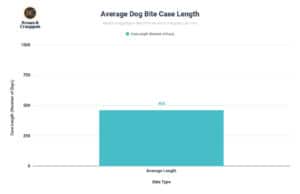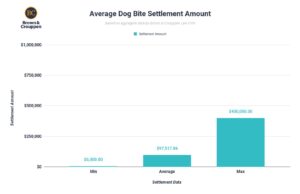- Why Passengers Are Rarely Considered at Fault
- Situations Where a Passenger May Be Held Partially or Fully at Fault
- Types of Compensation Available
- Who Can a Passenger Sue After a Car Accident?
- What Happens if The At-Fault Driver Is a Family Member or A Friend?
- Insurance Coverage and Filing a Claim as A Passenger Common Insurance Issues
- What if The At-Fault Driver Is Uninsured or Underinsured?
- Get Help from a Car Accident Attorney at Brown & Crouppen
Why Passengers Are Rarely Considered at Fault
Under Missouri law, drivers are required to exercise the highest degree of care when operating a motor vehicle. According to RSMo § 304.012, “every person operating a motor vehicle on the roads and highways of this state shall drive the vehicle in a careful and prudent manner and at a rate of speed so as not to endanger the property of another or the life or limb of any person and shall exercise the highest degree of care.”
If a driver fails to uphold this duty and causes a crash, they can be held legally responsible. Because passengers are not operating the vehicle, they are rarely assigned fault, making their compensation claims even stronger under Missouri law.
Situations Where a Passenger May Be Held Partially or Fully at Fault
However, there are some scenarios where a passenger may be partially or fully liable for causing or contributing to a crash. If a passenger acts negligently, meaning they behave in a way that a reasonable person would not, they may be considered at fault. This can reduce or even eliminate their ability to recover compensation. Missouri follows a comparative negligence system that can split compensation by assigning a percentage of blame to each party involved in an incident. For example, if your damages total $100,000 but you were found to be 25% at fault for the crash, you’ll be awarded $75,000. A few examples of this could include the following:
- Interfering with the Driver : If a passenger grabs the steering wheel, obstructs their view, distracts the driver using loud noises, or messes with the car controls, they could be held partially responsible if a collision were to occur.
- Encouraging Reckless Driving : If a passenger encourages the driver to run through traffic control devices, speed, swerve to mess with other drivers, or “brake check” someone, they could be held partially responsible if a collision were to occur.
- Knowingly Getting in the Car with an Impaired Driver : If a passenger voluntarily drives with someone who is driving under the influence, their compensation can be affected, as they are assuming the risk of an unsafe ride.
- Not wearing a seatbelt : Missouri law requires all passengers to wear seatbelts while in a car. If it’s determined that your injuries would be decreased if you were restrained, your compensation can be decreased.
If a driver fails to uphold this duty and causes a crash, they can be held legally responsible. Because passengers are not operating the vehicle, they are rarely assigned fault, making their compensation claims even stronger under Missouri law.
Types of Compensation Available
As a passenger injured in a crash, you may be eligible for a variety of damages, including:
- Medical Expenses
- Lost Wages
- Pain and Suffering
- Emotional Distress
- Permanent disability
- Loss of normal life and enjoyment of activities
Who Can a Passenger Sue After a Car Accident?
As a passenger in a car accident, depending on the circumstances, various parties can be sued for fault.
The Driver of the Other Car
If the accident was caused by the other driver’s negligence (e.g., speeding, running a red light, driving under the influence, you can sue the insurance company.
Brown & Crouppen obtained a $750,000 rear-end accident settlement for a client who was injured when a vehicle in which she was a passenger was rear-ended by a suspected drunk driver in Kansas City, Missouri. In this case, we sued the driver of the other vehicle.
In another case, a client who was sideswiped as a passenger in St. Louis County ended up with a lumbar spine tear. Brown & Crouppen secured a $250,000 policy limits settlement.
Your Driver
If your driver’s negligence caused the accident, their auto insurance would be another possible source of compensation.
For example, if you were riding in your friend’s car and they tried to speed through a yellow light but collided with another vehicle, you could file a claim against your friend’s auto insurance policy.
Ride Share Service Drivers (such as Uber or Lyft)
Accidents while in a ride-share vehicle work like any other car accident, and there’s often more insurance coverage due to corporate policies. If a ride-share driver is at fault, injured passengers are usually covered under the company’s commercial insurance policy. They may be able to pursue a claim directly through that coverage.
For example, suppose you are riding in an Uber and the driver is distracted and rear-ends another vehicle. In that case, you may be eligible to file a claim under Uber’s commercial policy.
Combination of Both Parties
Missouri law permits you to hold all at-fault drivers accountable for your injuries. With Missouri’s comparative negligence system, your damages award is adjusted according to the parties’ fault.
For instance, if you are a passenger in a vehicle that is T-boned at an intersection, and it’s determined that your driver was 40 percent at fault for failing to yield. In comparison, the other driver was 60 percent at fault for speeding; your $300,000 in total damages could be split accordingly. You may recover $120,000 from your driver’s insurance and $180,000 from the other driver’s policy.
What Happens if The At-Fault Driver Is a Family Member or A Friend?
Filing a lawsuit can feel stressful, especially if the at-fault driver is a family member or friend. It is normal to feel hesitant about filing a claim against someone you know personally. However, it is important to know that personal injury claims are typically directed at the insurance company, not the individual themselves.
This is exactly what motor vehicle insurance is meant to cover. If you are injured in a car crash, and your driver is determined to be at fault or partially at fault. In that case, it is still both reasonable and practical to pursue compensation for your medical bills, lost wages, and other expenses through their insurance policy.
Insurance Coverage and Filing a Claim as A Passenger Common Insurance Issues
It can be frustrating when a claim seems to drag on, even when fault appears clear. It’s important to understand that insurance companies often try to delay or minimize payouts. These delays can make the process more difficult for injured passengers. Most common delays include:
- Disputes Over Liability: Insurance companies can argue about which driver was at fault, especially if multiple vehicles were involved in the collision. Gathering this information and discussing it amongst all parties can take time to ensure diligence.
- Low Settlement Offers: Insurance companies often start by offering a lower amount, requiring further work and negotiations throughout the settlement process.
- Delays in Communication: Depending on the complexity of the collision, the number of parties involved, and the severity of the treatment required by the parties, this may result in a delay in communication between the parties. If multiple people were injured, the at-fault driver’s policy might not fully cover everyone’s damages.
What if The At-Fault Driver Is Uninsured or Underinsured?
Missouri law requires that all motor vehicle drivers and owners maintain some motor vehicle liability insurance coverage. Unfortunately, each year, thousands of Missouri citizens are involved in automobile accidents with drivers who have not maintained the required automobile insurance. In Missouri, the minimum UM coverage is $25,000 per person and $50,000 per accident. Additionally, auto insurance policies include a coverage limit. Every liability insurance policy has a maximum amount it will pay per person and accident. If the at-fault driver does not have insurance (uninsured) or doesn’t have enough to cover all your damages (underinsured), you still have options.
The primary coverage will be the at-fault driver’s liability insurance. If the at-fault driver is uninsured or underinsured, your own uninsured/underinsured motorist (UM/UIM) coverage can step in to help cover costs like medical bills, lost wages, and pain and suffering.
Brown & Crouppen helped a client in a Kansas City, MO rear-end collision obtain a $670,000 total settlement by layering the different avenues of insurance. The team recovered the $250,000 liability policy limits first, followed by the client’s $50,000 UIM policy limits, and finally a $370,000 UIM recovery through his employer.
Get Help from a Car Accident Attorney at Brown & Crouppen
When dealing with a personal injury insurance claim, it is crucial to consult with an experienced attorney who can guide and advise you through the claim. Early legal intervention can help protect your rights and improve your chances of compensation. The choice of a lawyer is an important one and should not be decided without careful consideration.
Our legal team is here to help you learn more about your legal options and evaluate the strength of your accident claim. We care about our community and have dedicated our practice to helping injury victims recover justice, accountability, and compensation.
Get started today with your free case evaluation by visiting Brown & Crouppen online or by calling us at 800-536-4357. Our St. Louis and Kansas City car accident lawyers have helped clients recover over $1 billion in settlements and verdicts. And remember, there are no upfront costs or legal fees – we only get paid if you win.









